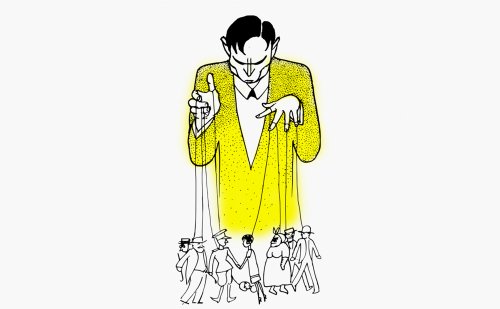Why does the genre of a street interview, where a correspondent talks to a passerby, only pretend to be objective? Why is Vox Pop more propaganda than journalism?
The essence of the genre is as follows: "we were walking down the street, met random people, and here’s what they told us…" In reality, this is absolutely not the case.
At the dawn of television, the Vox Populi genre served as at least some form of feedback from the audience: a correspondent would approach passersby on the street with questions, and then the answers would be broadcast. Everything looked solid — Vox Populi is, after all, the voice of the people; what could be higher?
But for a long time now, such street interviews have been used to fill gaps in the broadcast. Need to add something for a couple of minutes? Here’s a Vox Pop about the new bridge. These kinds of reports are usually assigned to interns or beginners. The correspondent is given a specific question in the studio and then asks it to random people. As a rule, neither the correspondent nor the people being interviewed understand the topic at all. They all frankly couldn’t care less.
Most people shy away from someone with a microphone, although it would be the most interesting to talk to them — they are hurrying somewhere, busy with something, clearly involved in something important. But more often, those who stop are the ones who have nothing else to do.
This does not mean that all participants in Vox Pop are lazy or eccentric, but the likelihood is high. Many reasonable citizens honestly answer, "I don’t know," but such an answer is useless and will not make it into the final video.
Thus, in a few hours, the correspondent scrapes together about a dozen opinions, the representativeness of which is out of the question, and brings them to the studio. Naturally, the editors are interested in making something worthwhile out of this, so the most polarizing and striking statements go on air. Preferably, something outrageous.
And here’s where the real problem with outrageous content lies. The average person does not have a well-thought-out opinion on all the world’s issues. That’s normal. But imagine, they’re walking down the street, and suddenly they’re hit with a question. In such situations, we usually grab the answer that’s "at hand" — something we heard on TV and haven’t forgotten yet. Thus, we get a closed loop: instead of opinions, people repeat what they’ve heard in previous broadcasts, and this cycle repeats itself over and over again.
The media, in essence, is not interested in people’s thoughts; they are interested in showing them in an interesting way. Moreover, the editorial team already knows what people will say. Sociologists take the time to worry about sample sizes and methodologies, but Vox Pop has no methodology or science behind it. Only haste and the desire to put as much shocking content on air as possible.
But that’s not the whole problem. What if the authors deliberately want to manipulate the information? What if their task isn’t just to produce shock content but to portray someone as a fool? The Vox Pop genre has absolutely no protection against such a technique. These aren’t just individual people — it’s the entire people speaking — it’s their opinion… And try to argue against that. But this is pure manipulation, especially if it resonates with the viewer’s worldview.
Today, the Vox Pop genre has been reborn on the internet. Modern social networks show us content based on algorithms that decide for us what will be interesting. Likes, comments, subscriptions — as it turns out, we’re quite easy to predict. Thus, what receives more reactions gets wider coverage. And it doesn’t matter what kind of reactions they are, as long as they exist.
This is why social networks benefit greatly when people argue. Whether it’s a diplomatic discussion or a stupid quarrel, social networks don’t care; they only care about audience engagement. This is how social networks make Vox Pop one of the most popular genres online. It’s still very cheap and effective, and traffic doesn’t stink. And people will do just about anything for it…
What could be simpler: put people in ridiculous circumstances, they look ridiculous, and then ordinary people feel an irresistible urge to express their opinions.
Still, Vox Pop does have a right to exist. It’s truly an opportunity to speak out. But it can only exist in a society with freedom of conscience, where there’s a wide range of opinions, no censorship in editorial offices, and people don’t adapt to the boss’s opinion. That is, when it’s safe to express oneself, and in our country, there are problems with that.
© https://youtu.be/QrsvYUuOSpU
© пераклад t.me/sceptic_club





















